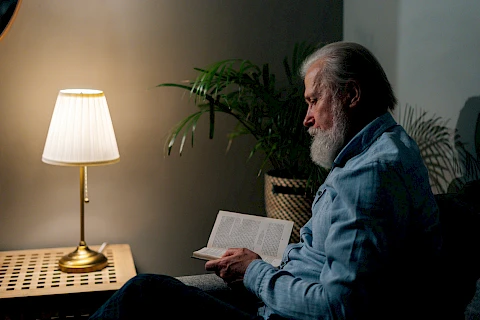
Sundown syndrome, or 'sundowning,' is common in older adults, especially those with cognitive issues, causing restlessness in the evening. It's characterized by increased agitation, confusion, and anxiety during the late afternoon or evening. This often challenging condition not only impacts seniors' well-being but also has profound implications for family caregivers, who may struggle to maintain a sense of peace and routine.
Understanding the Causes of Sundowning
Seniors can have different triggers for sundowning depending on their mental condition and what feels disruptive to them, specifically. These could range from various factors like tiredness or hunger to the discomfort of a change in routine. Seniors with cognitive impairment might become more anxious or agitated as the day progresses due to an inability to separate dreams from reality. Biorhythms, which control sleep and wake cycles, could also be affected in some seniors, leading to increased restlessness during the evening. Understanding these causes gives us the foundation to devise practical solutions for managing this condition.
Creating a Calming Evening Routine
A calming evening routine is beneficial for seniors experiencing sundowning, helping them feel secure and settled. Aim for consistency; having a predictable routine can reduce anxiety and instill a sense of familiarity in seniors. This could include a light, easily digestible dinner, followed by quiet activities, like reading or solving puzzles. Physical activities, like a stroll around the neighborhood or gentle stretching exercises, can also be incorporated earlier in the evening to help dispel residual energy. It's critical to introduce these activities gradually, ensuring they are appropriate and enjoyable for the seniors involved.
Environmental Adjustments for a Peaceful Evening
The home environment plays a crucial role in managing evening restlessness. A calm, welcoming space can significantly reduce agitation and anxiety in seniors. One way to achieve this is by controlling the light levels; exposing seniors to plenty of natural light during the day and dimming the lights in the evening can reinforce the body's natural sleep-wake cycle. Limit background noise by turning off the television or radio and instead opt for soft, soothing music that can act as a calming influence. It's also worthwhile to ensure the living space is safe and free from clutter, eliminating potential sources of stress or confusion.
The Role of Daytime Activities in Preventing Evening Restlessness
A balanced combination of daytime activities and rest periods plays a significant part in preventing sundowning. Physical activities such as gardening, walking, or simple housework can keep a senior engaged during the day, reducing the likelihood of restlessness and anxiety during the evening. Similarly, mental exercises such as painting, knitting, or playing memory games can offer cognitive stimulation, helping maintain cognitive health. However, it's also important to avoid overstimulation and ensure seniors have ample opportunities for rest. A short nap in the early afternoon, for example, can be refreshing without disrupting the night's sleep.
Get Help Caring for Loved Ones with Sundowning Symptoms
Evening restlessness or sundowning in seniors is a challenging aspect of caregiving. By fostering understanding, exercising patience, and employing effective strategies, one can establish an environment conducive to tranquility and reduce anxiety. Regular, peaceful evening routines, suitable daytime activities, and a serene living environment can go a long way in managing this condition.
At Senior Helpers San Marcos, we understand the unique challenges that come with caring for a loved one experiencing sundowning. Our dedicated team of professionals is available to help families in San Marcos, Kyle, Seguin, Bastrop, and Elgin navigate these complexities. Whether you need respite care, a comprehensive care plan, or Alzheimer's Care, we're here to help. Contact us today to learn how we can assist you and your loved ones.